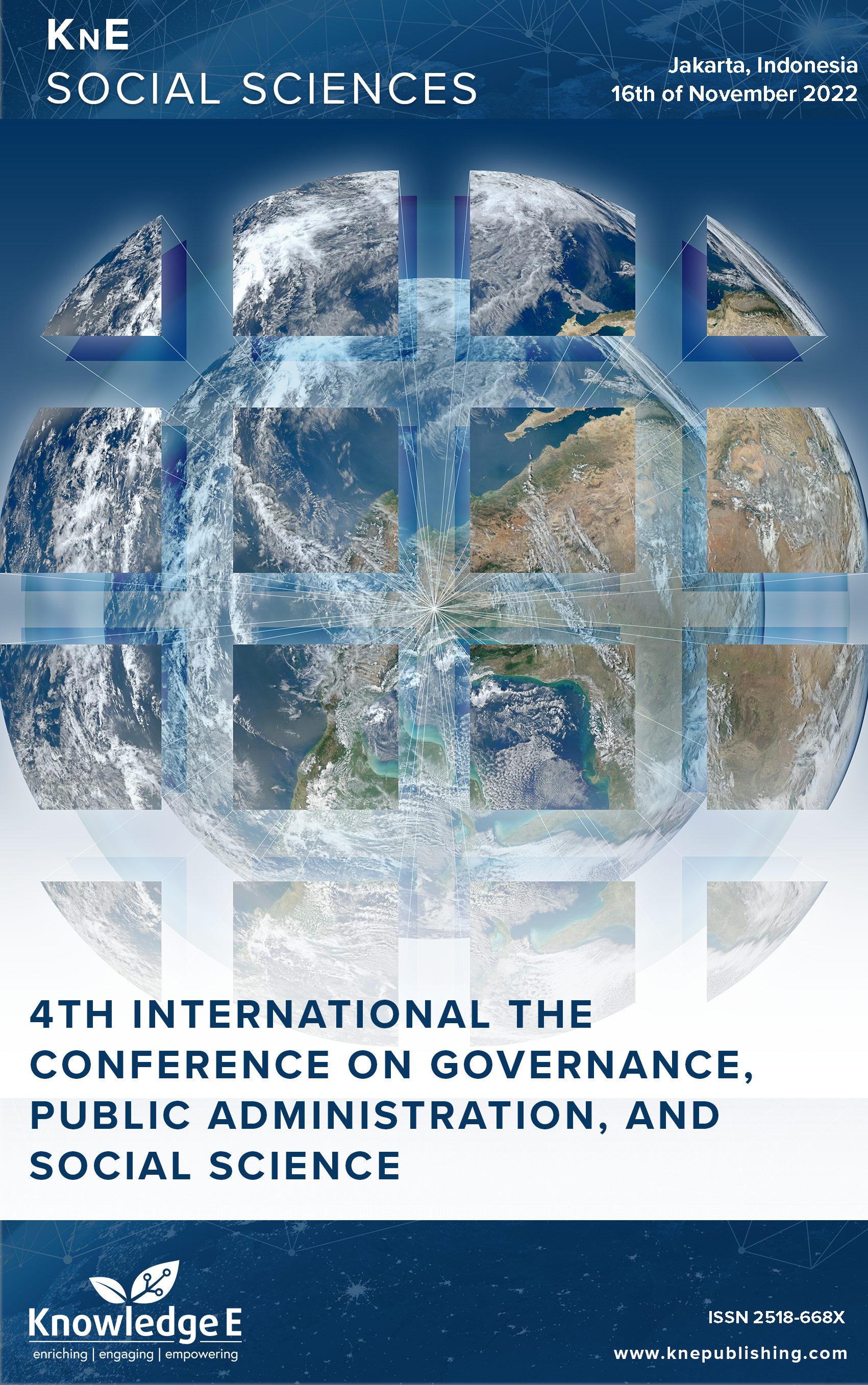Capacity Development of Food Institutions in the Regency of Timor Tengah Selatan
DOI:
https://doi.org/10.18502/kss.v8i11.13546Abstract
One of the problems faced in efforts to increase local food production in Timor Tengah Selatan regency is that institutional performance is still low. Food institutions play an important role in facilitating and participating in efforts to increase food production. Empirical facts show that food institutions such as farmer groups, farmer groups associations, Karang Taruna, PKK groups, and instructors and companions’ capacities have not been optimal in providing support for increasing food production in the Timor Tengah Selatan Regency. This research aims to find out the capacity of rural food institutions in Timor Tengah Selatan regency, using qualitative research methods. Research informants were determined purposively which included implementing policies at Food Security Service; village head; farmer group leader; Karang Taruna leader; leader of PKK groups, instructor/companion. Based on the results of the study, it is known that there are several aspects of institutional capacity that contribute to increasing food production in the regency of Timor Tengah Selatan, namely: (1) resources, (2) skills and knowledge, and (3) politics and power. In order for food institutions to function properly, it is necessary to have the active involvement of all food stakeholders to always empower existing food institutions in rural areas in Timor Tengah Selatan regency.
Keywords: institutional capacity, performance, food security, food production
References
[2] Nursalam. Bun’yana Saleh, 2020, Partisipasi kelembagaan pangan Pedesaan Dalam Meningkatkan Ketahanan Pangan di Kabupaten Timor Tengah Selatan. Jurnal Administrasi Publik. Oktober 2020;16(1).
[3] Kuban R, MacKenzie-Carey H. Community-wide vulnerability and capacity assessment (CVCA). Office of Critical Infrastucture Protection and Emergency: Preparedness: Ottawa. 2001.
[4] Gaillard JC. Vulnerability, capacity and resilience: Perspectives for climate and development policy. J Int Dev. 2010;22(2):218–232.
[5] Morgan PJ, Baser H, Morin D. Developing capacity for managing public service Reform: the Tanzania experience 2000-2008. Public Adm Dev. 2010;30(1):27–37.
[6] Davis I, Haghebeart B, Peppiatt D. Social vulnerability and capacity analysis. Discussion Paper and Workshop Report, Pro Vention Consortium, Geneva. 2004.
[7] Brinkerhoff DW. Developing capacity in fragile states. Public Adm Dev. 2010;30(1):66– 78.
[8] Bremer JA. Building institutional capacity for policy analysis: An alternative approach to sustainability. Public Adm Dev. 1984;4(1):1–13.
[9] Gibbs DC, Jonas AEG, Reimer S, Spooner DJ. Governance, institutional capacity and partnership in local economic development: Theoretical issues and empirical evidence from the Humber Sub-Region, Royal Geographical Society, ISSN 0020- 2754.
[10] Farazmand A. Building administrative capacity for the age of rapid globalization: A modes prescription for the twenty-first century. Public Adm Rev. 2009;69(6):1007– 1020.
[11] Waldo D. The enterprise of public administration: A summary view. Novato (CA): Chandler & Sharp; 1992.
[12] Farazmand A. Building administrative capacity for the age of rapid globalization: A modes prescription for the twenty-first century. Public Adm Rev. 2009;69(6):1007– 1020.
[13] Kettl DF. Managing boundaries in american administration: The collaboration imperative [Special issue]. Public Adm Rev. 2006;66 s1:10–19.
[14] Salamon L. Beyond privatization: The task of government action. Washintong (DC): Urban Institute Press; 1989.
[15] Creswell JW. Research design qualitative and quantitative approach. New Delhi, California, UK: Sage-Publication; 1994.
[16] Farazmand A. Building administrative capacity for the age of rapid globalization: A modes prescription for the twenty-first century. Public Adm Rev. 2009;69(6):1007– 1020.
[17] Lindaeur DL, Nunberg B. Rehabilitating government: Pay and employment reform in Africa. Washington (DC): World Bank;https://doi.org/10.1596/0-8213-3000-4
[18] Grindle MS, Hilderbrand ME. Building sustainable capacity in public sector: What can be done? Public Adm Dev. 1995;15(5):441–463.
[19] Klitgaard R. Institutional adjustment and adjusting to institutions, Office of Director- General for Operation and Evaluation, World Bank. 1995.
[20] Atkinson R. Discourses of partnership and empowerment in contemporary British Urban Regeneration. Urban Stud. 1999;36(1):59–72.
[21] Grindle MS, Hilderbrand ME. Building sustainable capacity in public sector: What can be done? Public Adm Dev. 1995;15(5):441–463.

